Dawn of the Dead (1978)
“When there’s no more room in hell, the dead will walk the Earth.”
|
Synopsis: |
|
Genres, Themes, Actors, and Directors:
Response to Peary’s Review: I disagree completely with Peary on this film, which has become a cult classic in its own right. His description of Romero’s choice to set the film in a shopping mall — given that it represents “a gathering place, home-away-from-home, and self-contained community that, significantly, is minus only a church” — is, to be honest, over-thinking things. (Romero has said that his friend gave him a behind-the-scenes tour of the mall used in the movie and he simply thought it would be a good place to “hole up during an emergency.”) Meanwhile, the blood and violence throughout are so obviously fake (intentionally so) that it’s hard to get too upset about them. Instead, one simply roots for this motley group of protagonists as they face the truly freaky prospect of battling hundreds of undead creatures who move slowly but bite aggressively, causing near-certain transformation. All the leads do a fine job in their roles, and Tom Savini’s special effects are impressive given the budget and era. This one remains well worth a look. Redeeming Qualities and Moments: Must See? Categories
(Listed in 1001 Movies You Must See Before You Die) Links: |
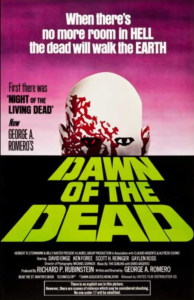
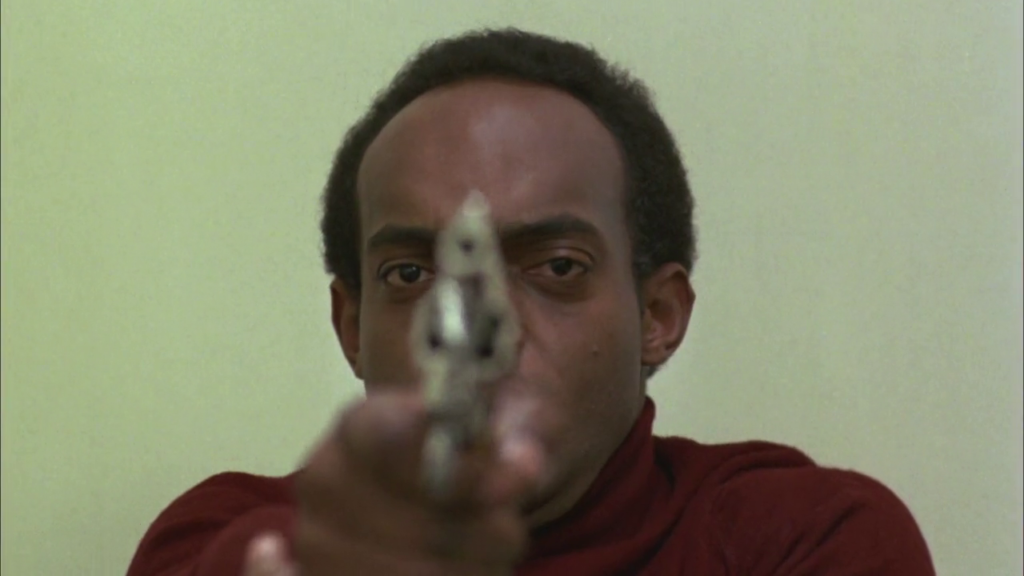
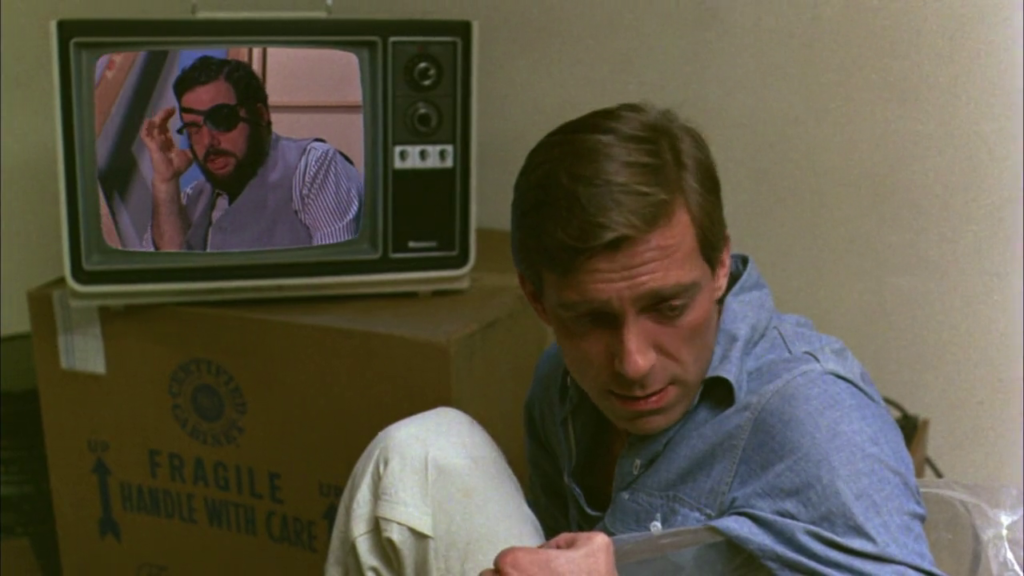
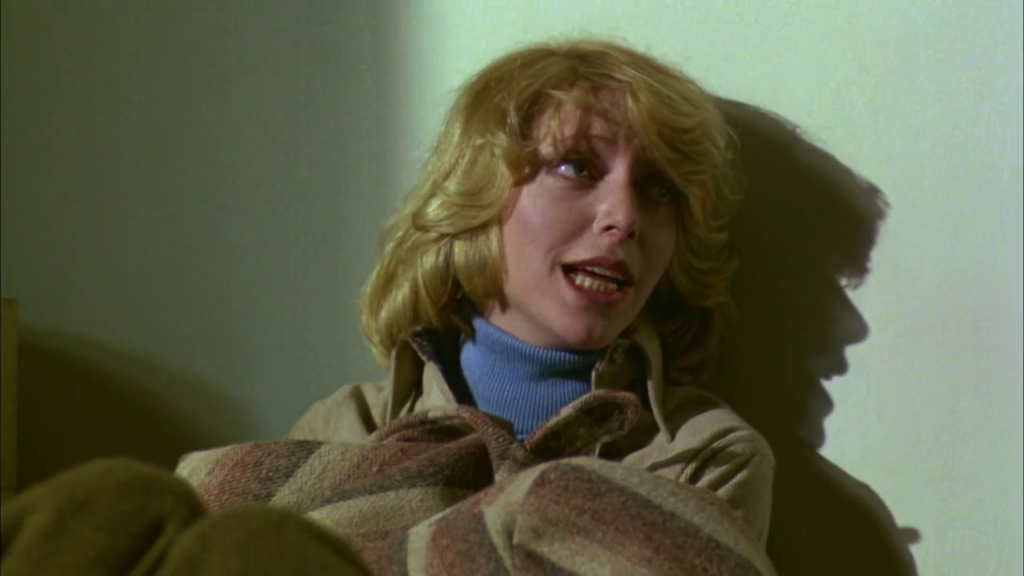

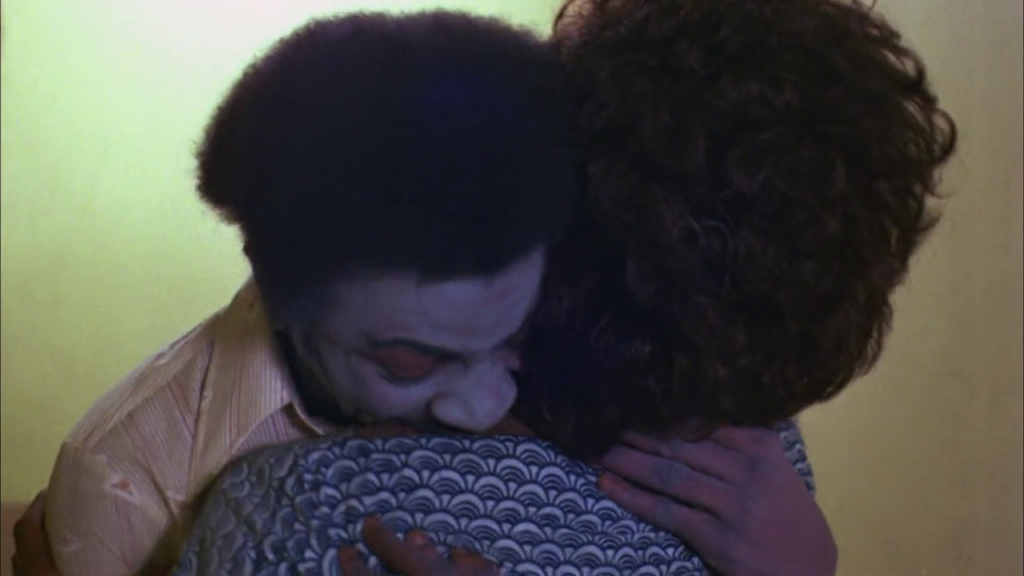
4 thoughts on “Dawn of the Dead (1978)”
Agreed; must-see, as a cult classic.
Talking of certain flicks will take you back to when and where you first saw them. I first saw this (on its release) at the (long gone) Greenwich Theatre in NYC with my bud Tom (in the balcony, up front).
As soon as it was over, Tom was craving pizza. C-r-a-v-i-n-g it! He must have been thinking of that while watching zombies bite into people’s necks.
‘Dawn…’ became a film that Tom and I often-enough revisited on a video movie night. Unlike ‘Night of the Living Dead’ – which still frightens me when I rewatch it – ‘Dawn…’ seems to be Romero operating with more of a wink to the audience. It has an OTT feel to it, meant to distract you from how frightening it could be if it were real.
It’s full-throttle entertainment; well-constructed / directed and well-acted.
⭐️⭐️⭐️⭐️ out of ⭐️⭐️⭐️⭐️
Agree with all said above; a classic and highly influential so a must. I wonder if Peary dislikes it these days?
It’s always funny, almost worthy of a MAD magazine spoof, to read reviews where high profile reviewers like Pauline Kael or Roger Ebert express selective outrage about a movie they don’t like. Almost as if the filmmakers went out of their way to personally offend them. Peary occasionally falls into this kind of semi-moral preening as he does here.
DOTD is very grisly and bloody, but it’s also very exciting, cathartic, and feels like it’s trying to transcend what Romero began to effectively communicate in Night of the Living Dead, injecting comedy and social commentary along the way. The stakes for his band of survivors are high. The threat is extreme, the blood and guts while over the top, still seem appropriate given all of this. I think Romero’s instincts were right and am not sure what kind of movie Peary would have preferred it had been, but am guessing it probably wouldn’t have been nearly as entertaining. It scared the socks off me when I was 15 or 16, and like a great album, it reveals new or more interesting things every time I watch it.
There are 3 different versions all of which are worth seeing if you’re a fan: the theatrical version, the Romero director’s cut with a drastically different soundtrack and additional footage, and the Dario Argento version called Zombie released in Europe which drops the run time to about an hour and 45 minutes but adds some footage not seen in either of the other versions.
Great film that got me mesmerized when I first saw it on a VHS tape when I was a young college student. I remember renting it after seeing a midnight college showing of “Night of the Living Dead”, and I was taken with the smaller moments when the three made a home for themselves in the shopping mall.
Full of social commentary and sly black humor. I really think some critics weren’t prepare to like it (sort of like some of the Leone westerns).
Roger Ebert did give it four stars, but the Pauline Kael’s of the world would usually never reevaluate films. Heck – Ebert never changed his mind on “Blue Velvet” and many other films he originally disliked. Yet, he gave “Last House on the Left” 3 1/2 stars (not that I didn’t like comparing it to “The Virgin Spring”).
Just goes to show that critics have their own tastes as well.